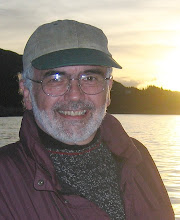My grandchildren may still have cars -- they probably will--but not in the way I had them. Few people in coming generations will have the kind of relationship with their wheels so many people had in my generation. They won't be able to. A rheostat isn't a throttle.When superb cars like half-used 5-series BMWs and even Corvettes are being trashed as "clunkers" to get some government dosh you have to wonder. But it is way too soon to write off the internal combustion engine. No one, and I mean no one, has yet perfected an all-electric car. And here's why.
St. John's, Newfoundland, where I live, is the one of the most beautiful small cities in the world. It is also one of the toughest driving environments anywhere . Moist sea air, fog and rain, heavy snow, steep hills, abundant road salt to keep the hills ice free in winter, a stop-and-go and never-warm-up driving regime, and yes, expressways - even the most modern conventional cars wear out and rust out much faster here. Electrical problems due to corrosion are common.
How would an electric car stand up to our constant winter demands of heating, defrosting, lighting, wipers, deep snow traction and wheelspin on our steep hills? How long would a charge last?
And that's in the city. Newfoundland is a huge, sparsely populated island. People drive 200 kilometers every day just to get to work. They use isolated highways where there are few gas stations, let alone electrical outlets. And then there's Labrador and its sub-arctic cold. People driving in these conditions will not give up their IC engines.
Perhaps our grandchildren will drive electric. Personally I'm hoping for a breakthrough in cheap hydrogen generation. This will allow us to build new, pollution free internal combustion engines that run, drive and sound just like what we love today. Oh joy!


 Canadian Dollar Converter
Canadian Dollar Converter

